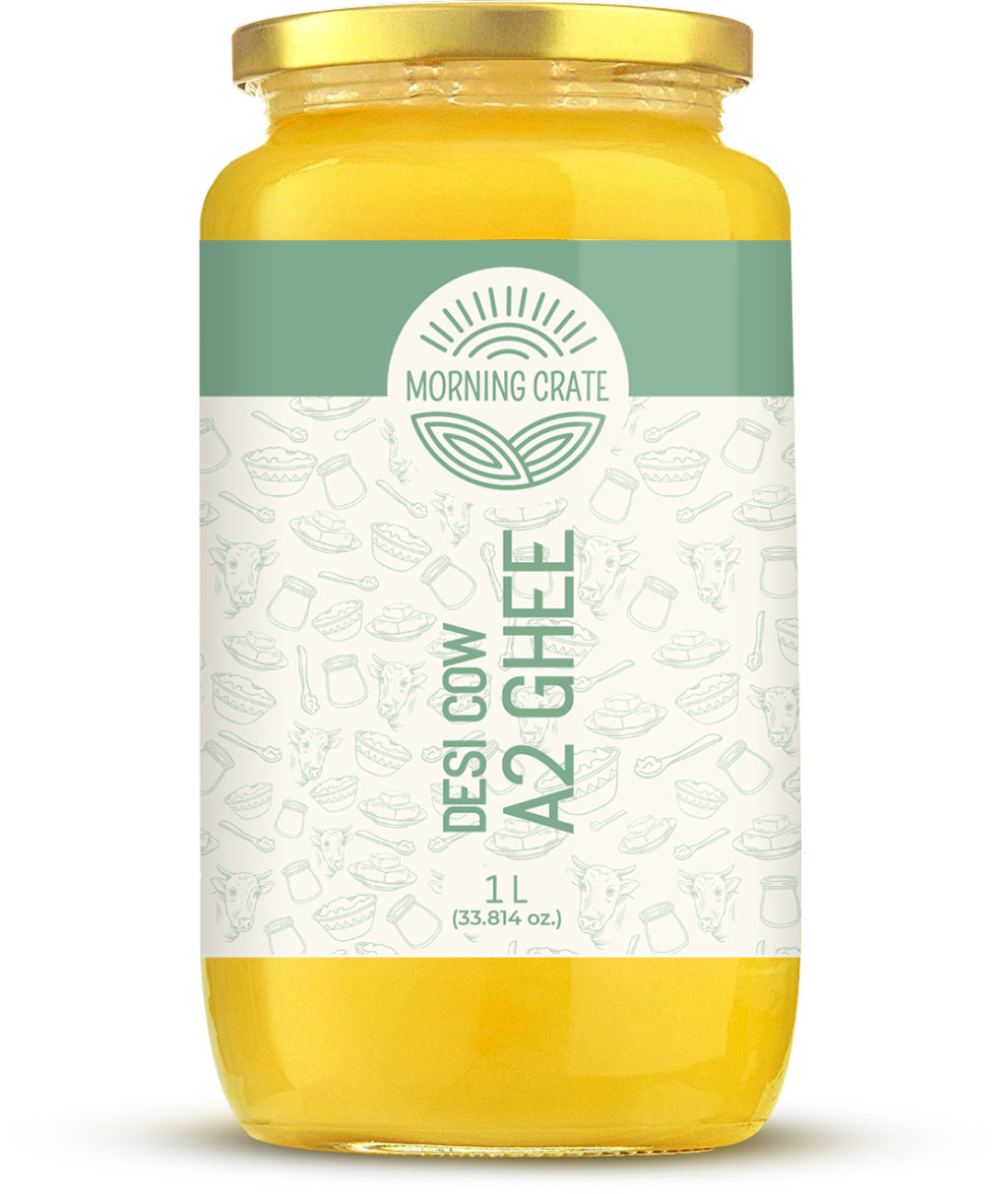Assessing the Value of Authentic Organic Dairy Options

Desi Cow Ghee
In recent years, there has been a growing shift towards organic and natural products as people become more aware of the health benefits associated with clean and wholesome ingredients. Dairy products, especially ghee, have garnered much attention due to their essential role in traditional Indian cooking and their numerous health benefits. With a particular focus on organic cow ghee, consumers are increasingly looking for ways to ensure the best value without compromising on quality.
This article delves into the importance of authentic dairy options like organic cow ghee, examines the factors influencing the desi cow ghee price, and offers insights on why opting for organic dairy is a wise investment for your health.
Why Organic Cow Ghee?
Ghee has been a staple in Indian households for centuries. From adding flavor to dishes to offering medicinal benefits in Ayurvedic traditions, ghee is prized for its versatility and health-boosting properties. However, not all ghee is created equal. Organic cow ghee, which is made from the milk of cows raised on organic farms without the use of chemicals, hormones, or antibiotics, offers a much purer and healthier option compared to its commercially produced counterparts.
- Health Benefits of Organic Cow Ghee
Organic cow ghee contains high amounts of essential fatty acids, vitamins A, D, E, and K, and antioxidants. It is also rich in conjugated linoleic acid (CLA), which helps in reducing body fat, improving digestion, and enhancing immune function. Since organic ghee comes from cows that are grass-fed and free from synthetic additives, it retains more nutrients and is considered safer for consumption, particularly for those who are health-conscious or sensitive to processed foods.
- Free from Harmful Chemicals
One of the primary reasons consumers opt for organic dairy is the absence of harmful chemicals such as pesticides, synthetic fertilizers, and growth hormones. In contrast, conventionally farmed dairy products may contain trace amounts of these chemicals, which can accumulate in the body over time and pose potential health risks. Organic ghee is produced under strict regulations, ensuring that the cows are raised in natural conditions, fed on organic pastures, and not exposed to antibiotics or artificial growth hormones.
Desi Cow Ghee vs. Commercial Ghee: Understanding the Price Difference
When exploring desi cow ghee prices, it’s essential to understand what goes into the production of high-quality organic ghee and why it may be priced higher than mass-produced alternatives.
- Quality of Milk Source
The quality of the milk used to make ghee directly influences the product’s price and nutritional content. Desi cows, such as Gir, Sahiwal, and Tharparkar, are indigenous breeds known for producing A2 milk, which is considered easier to digest and more aligned with our ancestral diets compared to A1 milk from commercially bred cows. The milk from these cows is used to create desi cow ghee, which retains more natural nutrients, making it a superior choice for those looking for high-quality dairy products.
The feeding practices, care, and overall well-being of the cows also contribute to the ghee’s quality. Cows raised on organic farms graze on natural pastures and are not exposed to artificial supplements, which leads to healthier, more nutritious milk and, ultimately, better-quality ghee. These factors naturally increase the desi cow ghee price, but the added benefits to health make it a worthwhile investment.
- Traditional Production Methods
Another factor that affects the price of cow ghee organic is the method of production. Traditional ghee-making processes, such as the Bilona method, involve slow churning of curd to extract butter, which is then clarified into ghee. This labor-intensive process ensures that the ghee retains its essential nutrients and offers a superior flavor. In contrast, commercially produced ghee is often made using mechanized methods, which may involve high temperatures and preservatives, leading to a lower-quality product.
- Sustainability and Ethical Practices
Organic ghee is typically produced in smaller quantities by farms that prioritize sustainability and ethical animal care practices. These farms are committed to environmentally friendly processes, such as reducing carbon footprints, conserving water, and maintaining soil health. Consumers who value sustainability often find organic ghee to be a better option, knowing that their purchase supports more ethical farming practices. However, these practices do contribute to a higher desi cow ghee price.
Why Organic Dairy is Worth the Investment
While the cost of cow ghee organic may seem higher than that of regular ghee, the benefits associated with consuming organic products far outweigh the price difference.
- Nutritional Superiority
Organic cow ghee is nutritionally superior due to the absence of harmful chemicals and the presence of more beneficial compounds like CLA and omega-3 fatty acids. These elements contribute to better heart health, improved digestion, and stronger immunity. The extra nutrients provided by organic ghee make it a better long-term choice for enhancing overall well-being.
- Better Taste and Aroma
Organic ghee often has a richer flavor and more pleasant aroma compared to regular ghee. The traditional methods of ghee production allow the butterfat to retain its natural flavors, making organic ghee an excellent choice for cooking or as a spread. Whether you’re preparing dals, curries, or simply drizzling it over rice, organic ghee can elevate the flavor of your dishes significantly.
- Supporting Ethical Farming Practices
When you purchase organic dairy products, you’re supporting farms that prioritize the well-being of their animals and the environment. By choosing organic ghee, you’re contributing to a more sustainable food system that benefits not only your health but also the planet.
How to Purchase Organic Ghee
Thanks to the availability of organic cow ghee from various online platforms and specialty stores, sourcing high-quality ghee is easier than ever. Here are a few tips to consider when purchasing organic ghee:
- Check for Certifications
Ensure the ghee is certified organic by reputable organizations. Certifications guarantee that the product has met strict standards regarding the use of chemicals, the health of the cows, and the production process.
- Read Labels Carefully
Look for information on the milk source (A2, grass-fed, etc.) and the production method (Bilona, hand-churned). Ghee that specifies these details is likely to be of higher quality.
- Compare Prices
While desi cow ghee prices may vary across brands, it’s important to compare prices in relation to the quality and source of the ghee. Organic ghee may be more expensive, but the health benefits and superior taste make it worth the investment.
Conclusion: Organic Dairy is a Wise Choice
Investing in cow ghee organic is a step towards healthier, more mindful living. The slightly higher price is justified by the numerous health benefits, better taste, and assurance that you’re consuming a product free from harmful chemicals. Moreover, supporting organic and sustainable farming practices contributes to a healthier environment.
As more consumers prioritize health and wellness, organic dairy options, especially ghee, have become an essential part of a balanced, nutritious diet. Whether you’re comparing the desi cow ghee price or looking for the best organic options, choosing quality over cost will always prove beneficial in the long run.








